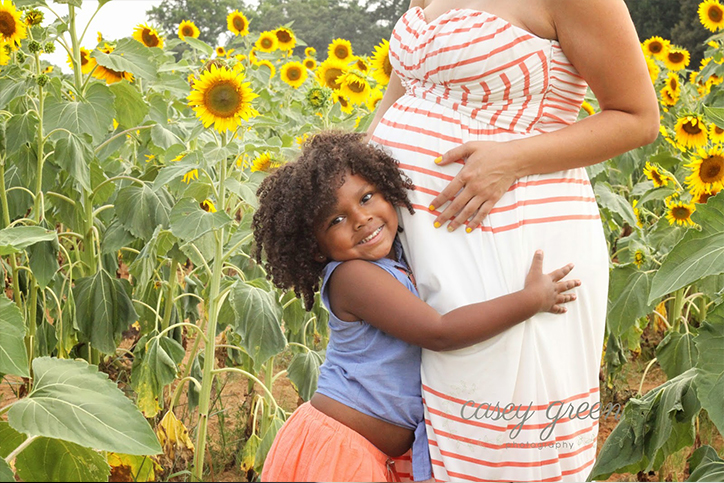People often do not think about the connection between climate change, pollution, and maternal health. Read to learn more about the intersection of maternal and environmental justice and how pregnant people can protect themselves against environmental harms. E2I2 is actively exploring community-based projects in this space.
Extreme heat is a threat to the health of pregnant people and their babies. This information provides some easy ways to stay cool while pregnant and to keep your baby cool too!
KEEP YOUR BABY COOL THIS SUMMER!
- Babies are especially vulnerable to extreme heat because they have less ability to regulate their body temperature.
- Exposure to extreme heat is linked to infant death and developmental delays.
- Extreme heat is a climate justice issue. Low-income communities and communities of color are more likely to experience extreme heat and less likely to have resources like air conditioning to keep them cool. When they do have access to air conditioning, their energy bills are more likely to be higher.
Tips to keep your baby cool this summer:
- Keep your baby in the shade.
- Keep your baby hydrated with extra breastmilk or infant formula.
- Apply cool, wet washcloths to your baby.
- Remove sweaty clothing and dress your baby in linens and cotton, not synthetic materials like polyester.
- Avoid taking your baby outside when the temperature goes above 90F.
- Use air conditioning. If you don’t have air conditioning, spend time in public libraries, malls, or find your closest cooling center.
- Use an electric fan if temperatures are below 95F (fans are not helpful if the temperature is higher than 95F).
Want to read more?
The information comes from the following sources:
- Extreme Heat & Air Pollution: Health Effects on Babies & Pregnant People – HealthyChildren.org
- Feeling hot during pregnancy: How to avoid overheating while pregnant | BabyCenter
- Extreme Heat Is a Pregnancy Health and Reproductive Justice Problem | Human Rights Watch (hrw.org)
- How climate change harms pregnant people and their babies – EHN
Protect yourself from poor air quality while pregnant:
Exposure to poor air quality while pregnant is linked to low birthweight and preterm birth. Poor air quality may also worsen pregnant people’s asthma. If untreated, asthma can cause preeclampsia, a dangerous condition in pregnancy. A new study from Harvard found that exposure to poor air quality during pregnancy is connected to an increased risk of childhood autism.
Due to historic discrimination, people from diverse racial and ethnic backgrounds and low-income communities breathe in more polluted air.
What can you do?
- Regularly check the Air Quality Index (AQI) in your area. The AQI provides details about air quality in your community. Type your zip code into the search feature: Air Quality Index (AQI) | AirNow.gov
- Wear a mask when air quality is unhealthy. Snug-fitting KN95 and N95 masks help block harmful air particles.
- When the air quality is unhealthy, limit your time outside. If you are outside, take breaks from any activity you are doing.
- Indoor air quality is important too. If you do not have air conditioning and need to open the windows for cooling on hot summer days, consider spending time in air-conditioned public places like libraries, the mall, and a local cooling center.
- To improve indoor air quality while cooking, open windows, use your stove’s vent, or air out the kitchen with a fan.
- Limit frying and other cooking methods that produce a lot of smoke.
- Clean cooking appliances frequently to reduce burning leftover crumbs.
- Use cooking oils that can be heated to a high temperature before they start burning. Examples include canola oil and peanut oil.
- If you can afford to, consider buying a portable HEPA filter that you can move from room to room.
- Do not use air fresheners and incense. Consider switching out store bought cleaners for homemade options using vinegar. See options for making your own cleaners at [Insert link to Bellies to Babies instructions].
Want to read more?
The information comes from the following sources:

